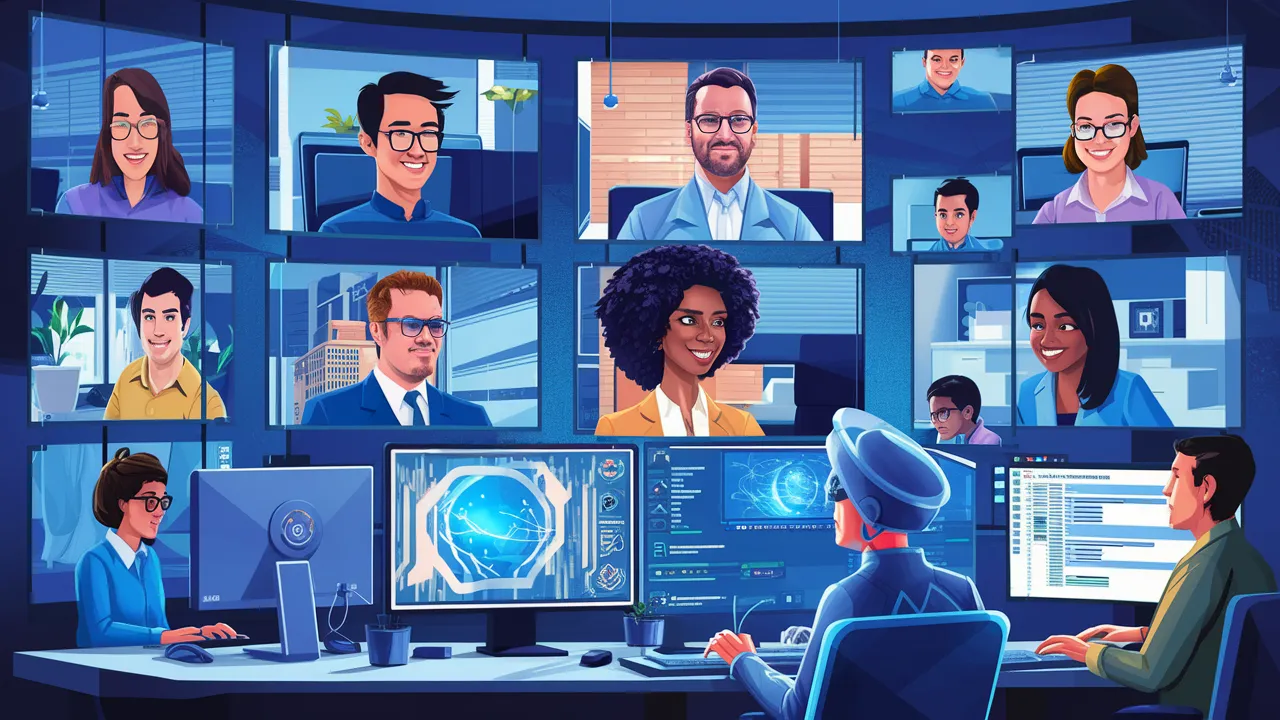
As a tech company founder, I firmly believe that the most effective and future-proof teams are those given the flexibility and trust to thrive in a distributed, remote environment. The world is now one massive online ecosystem, and our work as cybersecurity professionals must mirror that reality.
The future of cybersecurity demands more than cutting-edge technology – it demands adaptability. As a cybersecurity founder, I believe building flexibility and trust into our teams is a strategic advantage, not just a perk. A distributed workforce allows us to secure a globally connected world. It widens our talent pool, accelerates innovation, and increases our vigilance on a 24/7 basis. The pandemic proved that remote teams are not only possible but can often be more effective. By fostering a culture of responsibility, clear communication, and proactive security measures, we create the kind of agility and resilience needed to face the unknown in our field.
Here's why:
- Talent transcends geography. Expertise is no longer confined by borders. A flexible work model lets us tap into the best minds in the field, regardless of their location. This means an exponentially wider pool of potential rockstars for our teams.
- A new work-life dynamic. The pandemic solidified the shift toward desiring greater control over where and when we work. When we honor employees' need for this balance, they become more engaged, loyal, and productive.
- Security knows no time zones. Cyber threats don't operate on a 9-to-5 schedule. A globally distributed team lets us create a 'follow the sun' security model for 24/7 vigilance. We can also leverage diverse time zones to speed up development and solution cycles.
- The evolution of collaboration tools. Technology has finally caught up. The proliferation of video conferencing, real-time collaboration platforms, and secure file-sharing has made remote work seamless without compromising communication or data security.
Recent Examples That Prove This Model Works:
- The 'Zero Trust' revolution. Zero Trust security frameworks assume everyone and everything is a potential threat, even within the network. This mindset mirrors a distributed workforce – trusting people rather than locations is essential for success.
- Increased resilience during crises. When the pandemic hit, companies with existing remote-friendly structures weathered the storm far better. Their security teams didn't miss a beat, and business continuity was maintained.
- Cloud-based security growth. The boom in SaaS cybersecurity solutions highlights the inherent agility of cloud-based, distributed technologies. These technologies are designed to protect a model where data and people aren't centrally located.
Of course, flexibility doesn't mean relinquishing control. Key principles must underpin this shift:
- Culture as the core. Focus on outcomes, not work hours. Trustworthiness and a 'security-first' mindset must be embedded deeply within your company's DNA.
- Robust infrastructure. Invest in top-notch secure collaboration tools, remote access systems, and employee training on secure work practices.
- Proactive communication. Regular check-ins, team-building exercises, and remote celebrations of wins are vital to keeping a sense of camaraderie alive across distances.
The future of cybersecurity is distributed. By embracing flexibility now, we build teams that are happier, more productive, and uniquely ready to face the ever-evolving challenges of securing a borderless world.
- Empowering innovation: Rigid structures stifle creativity. When people have the autonomy to work when and how they work best, they're more likely to come up with breakthrough ideas. This is crucial in a lightning-fast field like cybersecurity.
- Attracting (and retaining) diverse talent: A flexible approach appeals to underrepresented groups like parents, those with disabilities, or people navigating other responsibilities. A diverse team equals diverse perspectives – a superpower for identifying and overcoming cybersecurity blind spots.
- The well-being factor: Stress and burnout are rampant in cybersecurity. Prioritizing flexibility shows genuine care for our people. A mentally healthy team is sharper, more vigilant, and more able to think like a potential attacker.
- Agility in the face of the unknown: Cybersecurity is the ultimate field where adaptability is paramount. A workforce accustomed to working remotely and independently has a built-in ability to react quickly, problem-solve creatively, and pivot with the next unforeseen vulnerability.
It's not just a 'nice to have' – it's about survival
Ultimately, I believe those cybersecurity companies that cling to the old office-centric model will begin to struggle. They'll find themselves competing for a shrinking talent pool while operating with less innovative and less resilient teams.
Flexibility isn't about 'letting people slack off'. It's about respecting their ability to manage their own time responsibly while delivering quality work and protecting our most crucial assets. Trust is at the heart of this, but it's a calculated and intelligent trust backed up by the right cultural values, tools, and communication.
https://bit.ly/3XvnEsx
https://bit.ly/3VxypYF
https://guptadeepak.com/content/images/2024/06/distributed-workforce-next-gen.webp
https://guptadeepak.weebly.com/deepak-gupta/the-distributed-workforce-why-flexibility-and-trust-are-essential-in-cybersecurity


No comments:
Post a Comment